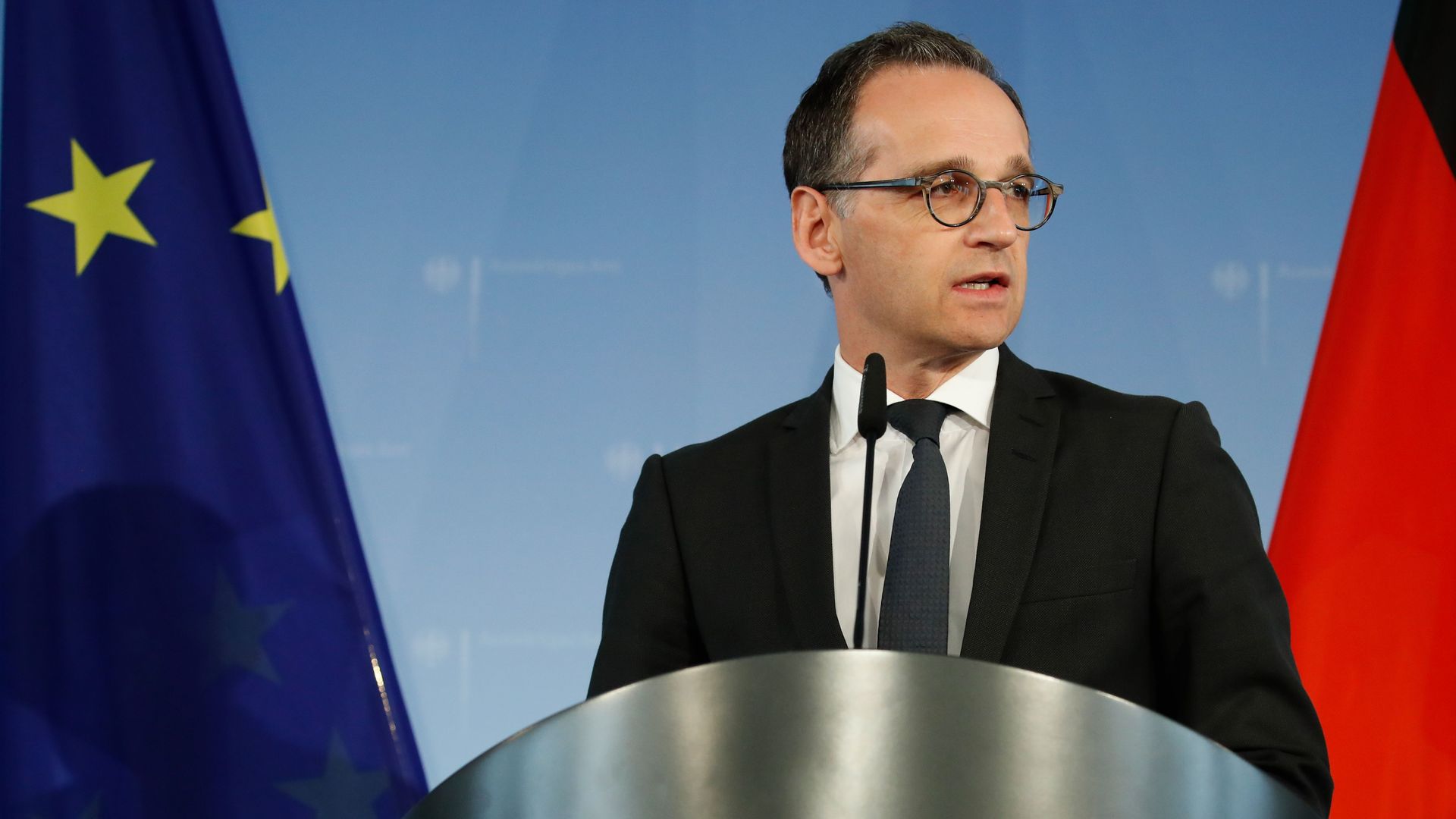Updated Jul 17, 2018 - World
Expert VoicesU.S. and Europe continue to butt heads on Iran
Add Axios as your preferred source to
see more of our stories on Google.

German Foreign Minister Heiko Maas gives a statement in Berlin on May 9, 2018, after President Trump pulled the U.S. out the Iran nuclear deal. Photo: Odd Andersen/AFP via Getty Images
